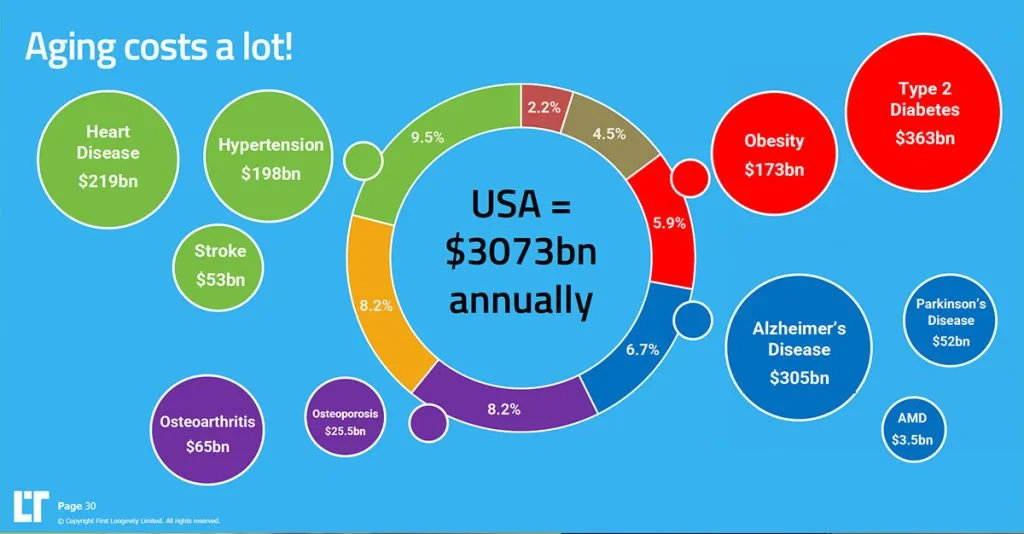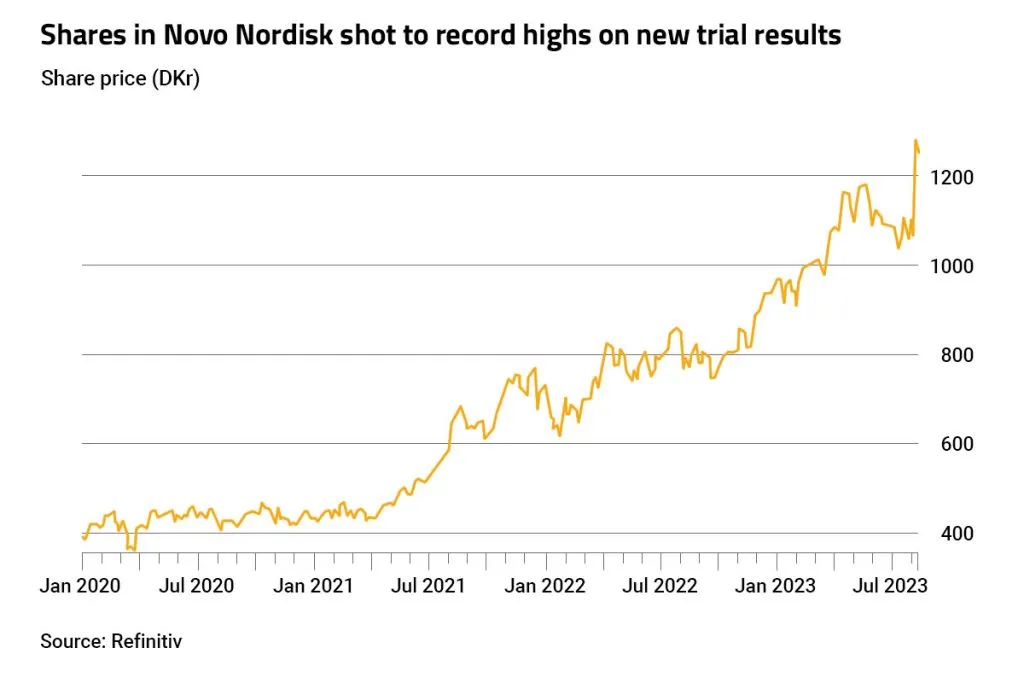
Could a new weight-loss drug open the door to anti-aging therapies?
Preparing for various conference presentations and not wanting to repeat last year’s talk, I wanted to see what was happening outside of our longevity industry to draw parallels to our industry’s progress.
Some of the questions I wanted to answer:
Are we at the peak of the longevity hype? Answer: No, not yet, but Bryan Johnson’s work is raising awareness of humans’ ability to roll back biological age. Kim Kardashian’s whole-body MRI is a harbinger of longevity awareness and, in fact, prompted us to launch our own survey of longevity clinics: You need to know what’s going on.
Will the FDA classify aging as a disease? Answer: still soo off if ever if needed.
But frame the question in a different way Will a longevity drug need FDA approval to be commercially successful? Answer: No, because all longevity drugs will have a positive effect on at least one disease of aging, they will eventually receive approval. If a drug is based on an aging pathway that demonstrates efficacy in more than one aging-related disease, then who’s going to complain? After all, it’s about more revenue for the pharmaceutical sector, more prescribing options for doctors, more patients under management, and less consequences of the diseases of aging for governments.
Longevity.Technology: Yes, system rejuvenation is the panacea for longevity therapies that turn back the clock in all cells and, therefore, organs. But what about a drug that addresses multiple diseases of aging, basing its aging mechanism on a recognized aging pathway, mechanism, or hallmark? Yes, that would work.
Semaglutide, sold under the brand names Ozempic, Wegovy and Rybelsus, and referred to in some markets as ‘skinny jab’, is the weight loss drug recently approved for use in the UK’s NHS for millions of people.
Not thousands, millions!
Used for the treatment of type 2 diabetes, Semaglutide is an anti-obesity drug prescribed to lose weight, but being overweight is not a disease (in most cases). Being old is also not a disease – an interesting parallel.
Based on the GLP-1 hormone, Semaglutide can be used for conditions other than weight loss; it has also demonstrated efficacy in improving symptoms related to heart failure in human studies [1]as well as neuroprotective properties in mouse studies, promoting DNA repair in neurodegenerative diseases [2].
So the “scarce” drug eliminates diabetes, cardiovascular diseases and potentially neurodegenerative ones: a drug for longevity?
In the United States alone, these age-related diseases cost $363 billion, $470 billion, and $361 billion, respectively, each year.

The U.S. Food and Drug Administration has already approved Wegovy (Semaglutide) Injection (2.4 mg once weekly) for chronic weight control in obese or overweight adults with at least one weight-related condition (such as high blood pressure of type 2). diabetes or high cholesterol) [3].
Injected weekly, the drug must be prescribed by a specialist; a similar drug, liraglutide, marketed as Saxenda and made by the same company, is already available, but must be injected daily [4].
So what does this have to do with the longevity industry? Well first, the longevity revolution will be a slow revolution, success may creep up on us with Semaglutide, perhaps this creep may have already begun.
Since development cycles are so long in the therapeutic industry and the struggle to bring a compound to market through safety and efficacy is so daunting, don’t expect a big bang any time soon.
Consider the switch instead. Switch the weight loss theme to an aging theme in these August 2023 Financial Times headlines and you’ll get an idea of how successful longevity therapy will pan out once it gains market attention and peak of the hype:
Weight Loss Drugs: Will Health Systems and Insurers Pay for the ‘Lean Jabs’?
Anti-aging drugs: Will health systems and insurers pay for the ‘longevity shots’?
Chinese pharmaceutical makers are developing copycat versions of the “wonder” weight-loss drug
Chinese pharmaceutical manufacturers are developing copycat versions of the longevity ‘miracle’ drug
Do Big Pharma Get Longevity?
Give me a ‘hell yes’. Our team works with the investment arms of Tier 1 pharmaceutical companies through our separate investment brokerage operation, they are interested in longevity biotechnologies working on aging pathways and diseases. Just check Novo Nordisk’s share price to see the benefits (or even) the potential for future approvals and orders.

It’s not often you have a 100-year-old company and still grow at 30%, Novos chief executive Lars Fruergaard Jrgensen told reporters. The company now expects sales to grow 27-33% this year and operating profit to rise 31-37%. [5].
As this drug and others make their way to market and researchers test their effectiveness in targeting other diseases related to aging, we will see the biotech longevity thesis play out in national health care systems and clinics around the world.
To revisit the questions I wanted to answer:
Are we at the peak of the longevity hype? Not yet, but Semaglutide is an interesting example of how things could be.
Will the FDA classify aging as a disease? As Semaglutide proves, you don’t have to.
[1] https://www.bhf.org.uk/what-we-do/news-from-the-bhf/news-archive/2023/august/wegovy-weight-loss-drug-has-benefits-for-people- with heart failure and obesity
[2] https://pubmed.ncbi.nlm.nih.gov/30741689/
[3] https://www.fda.gov/news-events/press-announcements/fda-approves-new-drug-treatment-chronic-weight-management-first-2014
[4] https://www.telegraph.co.uk/lifestyle/wellbeing/diet/11367203/Daily-injection-that-is-better-than-dieting-or-exercise-on-NHS-soon.html
[5] https://www.ft.com/content/710c1048-7717-4553-a831-9e13ff27fb6c
#skinny #jab #longevity #drug
Image Source : longevity.technology